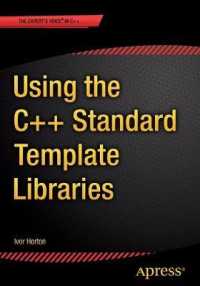Description
Modern medicine has produced many wonderful technological breakthroughs that have extended the limits of the frail human body. However, much of the focus of this medical research has been on the physical, often reducing the human being to a biological machine to be examined, understood, and controlled. This book begins by asking whether the modern medical milieu has overly objectified the body, unwittingly or not, and whether current studies in bioethics are up to the task of restoring a fuller understanding of the human person. In response, various authors here suggest that a more theological/religious approach would be helpful, or perhaps even necessary.
Presenting specific perspectives from Judaism, Christianity and Islam, the book is divided into three parts: "Understanding the Body," "Respecting the Body," and "The Body at the End of Life." A panel of expert contributors—including philosophers, physicians, and theologians and scholars of religion— answer key questions such as: What is the relationship between body and soul? What are our obligations toward human bodies? How should medicine respond to suffering and death? The resulting text is an interdisciplinary treatise on how medicine can best function in our societies.
Offering a new way to approach the medical humanities, this book will be of keen interest to any scholars with an interest in contemporary religious perspectives on medicine and the body.
Table of Contents
Foreword
Jeffrey P. Bishop
Introduction
John J. Fitzgerald and Ashley John Moyse
Prologue: Which Medicine? Whose Religion?
H. Tristram Engelhardt, Jr.
PART I: Understanding the Body
1 Responsibility for the Broken Body: Exploring the Invitation to Respond to the Presence of the Other
Ashley John Moyse
2 Embodied Soul and Ensouled Body: Reflections on Ravaisson and Theological Methodology
Matthew S. Vest
3 Judaism on the Body and the Practice of Medicine
Elliot N. Dorff
4 "The Believer is Never Impure": Islam and Understanding the Embodied Person
Ingrid Mattson
PART II: Respecting the Body
5 Reverence for the Body: An Ethical Principle Grounded in Human Experience
Jacek L. Mostwin
6 Healthy Legacies? Moses Maimonides and Thomas Aquinas on Caring for Others and Ourselves
John J. Fitzgerald
7 Islam, Medicine, and Practice: The Manifestation of Islamic Moral Values in Everyday Aspects of the U.S. Health Care System
Cortney Hughes Rinker
8 A Shared Common Good: Catholic and Muslim Bioethical Approaches to HIV/AIDS in Kenya
Timothy Carey
PART III: The Body at the End of Life
9 In the Land of Pain: Why Daudet and Hitchens Are Still Relevant
Susan E. Zinner
10 Suffering, Death, and the Significance of Presence
Autumn Alcott Ridenour
11 The Dead Body as an Object of Investigation, Intrigue, and Reverence
D. Gareth Jones
12 Defining Death in the Context of Jewish, Christian, and Muslim Perspectives
Noam Stadlan








